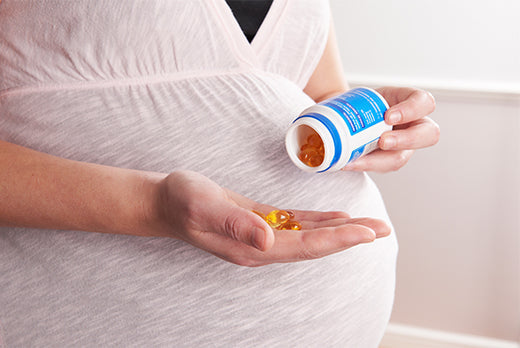
A woman’s nutritional needs become higher once she becomes pregnant. That’s why there is a greater need for her diet to contain the necessary nutrients, including vitamins and minerals – all achieved through a balanced diet. As for the needs of your growing baby, he or she cannot afford deficiencies of a few nutrients as these are essential in the development of vital organs. It is for this reason that your obstetrician would prescribe you some supplements. It is important to note that while not all pregnancy supplements are necessary, the benefits of giving them should outweigh the risks. That said, DO NOT self-prescribe. Always take supplements only after discussing its safety and dosage with your doctor.

Supplementsi Recommended for Pregnancy
One of the most widely prescribed supplements for pregnant women is Folic acid. Due to its critical role to prevent neural tube defect, folic acid supplementation is recommended even as you prepare to conceive.ii You may not realise it, but your baby’s brain starts developing even before your first prenatal doctor’s visit! 400 mcgii of Folic acid is the usual recommendation, but your doctor may decide to give a higher dose if you fall under a high risk category.
In addition to Folic acid, Iron supplement is also generally prescribed. Iron and folic acid, which support the formation of red blood cells, are especially important during your pregnancy when the volume of your blood increases to carry oxygen and nutrients to your body tissues and your baby. Iron deficiency anemia during pregnancy can lead to complications such as premature birth and low birth weight. The World Health Organization recommends that pregnant women take a daily supplement containing 30 to 60 mg of ironii. If you are a vegetarian, you should take more precaution because you may have increased risk of iron deficiency anemia. If you are diagnosed with anaemia during pregnancy, your doctor may increase your elemental iron dose: 120 mg until your haemoglobin rises to normal.
Another supplement that may commonly be given is Vitamin D, as insufficiency seems to be prevalent even in Asia, as people tend to stay in-door and avoid sun exposure. You should be getting 10 μg (micrograms) of vitamin D every day during your pregnancy. Vitamin D helps your body to absorb two important minerals – calcium and phosphorus – which in turn, supports the development of your baby’s bones and teeth. In addition, it also keeps them strong. If you are not getting enough vitamin D during your pregnancy, it may increase your risk of pregnancy related complications such as pre-eclampsia and low birth weightiii.

Can I take pregnancy supplements all at once?
Supplements provide the added nutrition necessary; however, the absorption of many of these may be affected by the food you eat or other supplements that you are prescribed. Therefore, it is important to follow your doctor’s prescription, including when to take your supplements. Plan a time chart for each supplement with the help of your doctor.
Pregnancy supplements to avoid
In many countries, supplements are easily available over the counter, so always read the safety label and consult with your doctor prior to taking them. In addition, be careful when you take herbal supplements. The ingredients may not always be suitable for pregnancy. Discuss these with your doctor. Mums, take note that there is no substitute to a balanced diet. Add these supplements if recommended and remember to have them with balanced, healthy meals!
REFERENCES:
- Vitamins, supplements and nutrition in pregnancy. (2017, January 26). Retrieved March 14, 2017, from http://www.nhs.uk/conditions/pregnancy-and-baby/pages/vitamins-minerals…
- World Health Organization, WHO recommendations on antenatal care for a positive pregnancy experience. Geneva: WHO Press. 2016.
- EFSA Panel on Dietetic Products, Nutrition and Allergies (NDA) (2016).Dietary reference values for vitamin D. EFSA Journal, 29 June.



